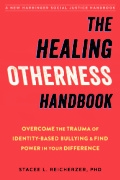There are probably very few things that feel as bad as the experience of being canned. The unexpected termination of our pay is of course a big part of it; but even if we can stabilize ourselves economically, it casts lingering doubt about our worth. We were cast out, unwanted, told that we aren’t good enough to work here anymore.
Bouncing back requires us to regain our lost self-esteem sooner than later. We can’t wait for a new job to help us feel better about ourselves. We need to start self-reflecting now so that we can make better decisions for our futures.
Let’s start with the basics of why this is difficult. People are terminated from jobs for a variety of reasons. Some are within our control and some are not. Getting to work on time each day, being punctual while on the job, and maintaining performance standards with honesty and integrity tend to be the sorts of things employers like. People who don’t do these things, or do them inconsistently, are the ones who face disciplinary action.
To be clear, not every termination is lawful or ethical; and injustices do occur. Our responsibility as the terminated employee though is to be honest with ourselves. Even if we have a union grievance, workplace investigation, or even pending lawsuit, we need to be clear.
What was our role in our termination, and what could we have done differently?
No matter whether a termination is just or not; it is the rare person who says, “Yep- I knew the expectations. I mismanaged my time/made poor decisions/cut corners one too many times. That’s why I was fired.”
To arrive here, we have to get past the rhetoric we tell other people. By all means, let folks know what an ass the boss was and how unreasonable the job expectations were.
But when we get done doing that, we have to be honest with ourselves. Did we call out sick because we didn’t feel like going in? Did we opt not to deliver our best effort because we didn’t want to go through the trouble of doing our job according to its expectation? Did we steal or cheat?
The truth will set us free.
Freedom in this case means owning what we did wrong. Becoming aware of this helps immensely because we then come to see our job termination in terms of what we can do differently next time. By pinpointing it, we place accountability squarely where it belongs: within our control. This level of personal clarity tells us what we need to do differently next time and reminds us that it’s up to us to do it.
When we instead use the familiar, “It was the boss’s fault,” “it was the stupid expectations they had,” enough to actually believe our line, however, we cut ourselves off from the learning opportunity. As a result, we are much more likely to repeat the mistake in future jobs. In repeating unhappy patterns, we aren’t going to feel very good about ourselves.
That brings us to the second thing we need to do: steadfastly refuse to invest in self-pity.
Yes, it’s devastating to be terminated from a job. Mourn the loss for the weekend, and then start Monday with a plan. We know we have skills, we know we’re smart workers. If we owned our mistakes, all the better. We’ll be ready to hit the job market.
If we’re not picked up immediately, it’s a blow each time we get the rejection letter, if even that courtesy is extended. It may take time, which can be made more stressful if money is a significant issue. Sometimes we need to take a bridge job or two, or borrow money to support our households until something else comes along.
During these times, we need to continue being honest with ourselves.
Don’t blame the recruiters or companies who aren’t hiring for the better jobs. Look at the skills we have and the current job market. Do we need to stretch, learn a new skill or technology? Do it. It’s hard, but taking personal responsibility for the changes we want and need is up to each individual. Acting from this place of responsibility will boost our confidence, and increase our job-finding skills.
Another consideration is whether we even want to return to work that resembles what we did in the past. After all, our behavior that got us fired was probably telling us something. If we were avoiding work previously, whether by calling out, going in late, or not doing the job to the best of our abilities; then what did our behavior really telling us about what we want or don’t want in a job?
I’ve seen so many people who hated the job from which they were terminated; but who upon termination got back into the same kind of work. That’s like leaving a marriage to an alcoholic only to marry the compulsive gambler down the street.
Job terminations are devastating experiences that potentially impact our self-worth and esteem if we let them. Rigorous honesty, openness to feedback, and a willingness to accept where and how we can improve our employability skills will take us a long way in bouncing back and rejoining the workforce. More importantly, ownership of our skills and the act of taking charge of the changes we want for ourselves can go a long way to boost our confidence, and by extension, our self-esteem.
If you believe you have been discriminated against in the workplace, review Equal Employment Opportunity Commission for more information and resources: http://www.eeoc.gov/


